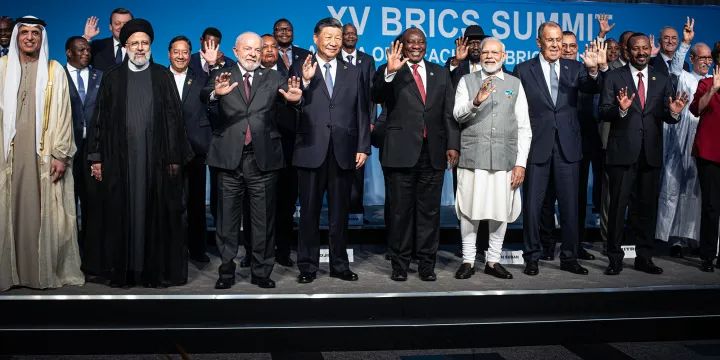South Africa recently hosted the BRICS Summit, where six new nations joined the bloc. This expansion has significant implications for the global energy landscape and the fight against climate change. The BRICS+6, consisting of six of the world’s top oil producers and four of the world’s top natural gas producers, will play a crucial role in shaping a new world energy order.
The BRICS+6: A Powerful Energy Consortium
The newly expanded BRICS group now includes three energy powerhouses – Saudi Arabia, the United Arab Emirates (UAE), and Iran. This addition strengthens the bloc’s position as a major player in the global energy market. Not only do these countries dominate oil production, but they also account for a substantial portion of the world’s natural gas reserves.
Energy Chokepoints and Geopolitical Influence
With their strategic geographical locations, the BRICS+6 countries now have a significant presence in critical maritime energy chokepoints such as the Persian Gulf, the Red Sea, and the Mediterranean. This gives them considerable leverage in global energy geopolitics and the ability to shape the flow and distribution of resources.

BRICS and Climate Change
While the expanded BRICS group is a formidable force in the energy sector, it also carries a significant responsibility for global greenhouse gas emissions. In 2021, the expanded BRICS accounted for 51% of global emissions. This places them at the forefront of the battle against climate change and the transition to sustainable energy sources.
The Energy Transition and Critical Minerals
Beyond their influence in oil and gas, the expanded BRICS countries have a crucial role to play in the energy transition. Argentina, for instance, possesses vast reserves of lithium, a key component in renewable energy storage systems. Brazil, Russia, and China hold substantial reserves of nickel, essential for battery technology. Additionally, China, India, Brazil, and Russia are major players in rare earth minerals, critical for various green technologies.
The BRICS Agenda on Climate and Sustainability
The original BRICS group has long recognized the importance of climate change and energy sustainability. While they have emphasized the need for a just energy transition and decarbonization, they have not committed to phasing out fossil fuels entirely. Instead, they aim to use all energy sources efficiently and explore the expansion of clean and renewable energies.
The BRICS Expansion and Climate Negotiations
Four of the original BRICS states – Brazil, India, China, and South Africa – have been active in coordinating their climate agenda as members of the BASIC group. These countries have called for developed nations to take responsibility for their historical emissions and provide financial support for climate action in the developing world.
A New Consensus on Energy and Climate?
The expansion of the BRICS group presents an opportunity to incorporate the climate positions of the new member countries into the existing BRICS agenda. While each country has its own energy mix and priorities, there is potential for collaboration and the pursuit of common goals in the fight against climate change.
Shaping a New World Energy Order
With their expanded energy consortium, the BRICS+6 countries have the potential to reshape the global energy landscape. Their influence in oil and gas production, as well as critical minerals, positions them as key players in the energy transition and the fight against climate change. The BRICS group, with its expanded membership, can be a driving force in shaping a new world energy order that is sustainable, equitable, and resilient.